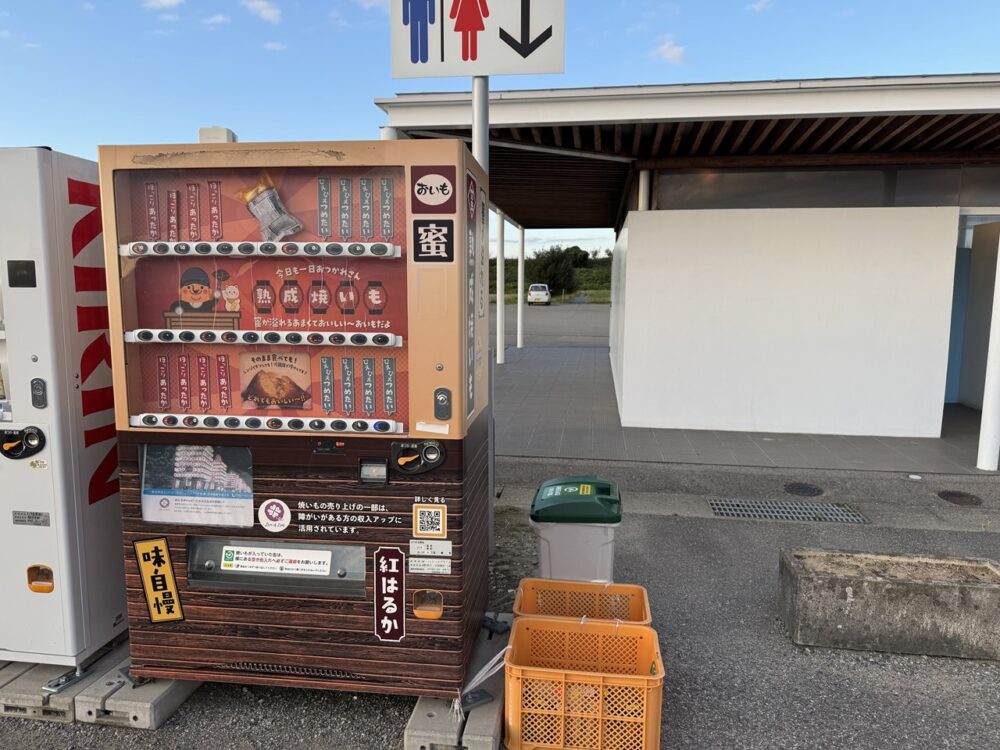Kaiwomaru Park, a 30-minute drive from Toyama Station, is where the old-fashioned sailing ship Kaiwomaru is on display.
Summary at the beginning
The Kaiwomaru was an engine-powered sailing ship built as a training ship to train sailors, and is said to have trained more than 10,000 sailors during its lifetime.
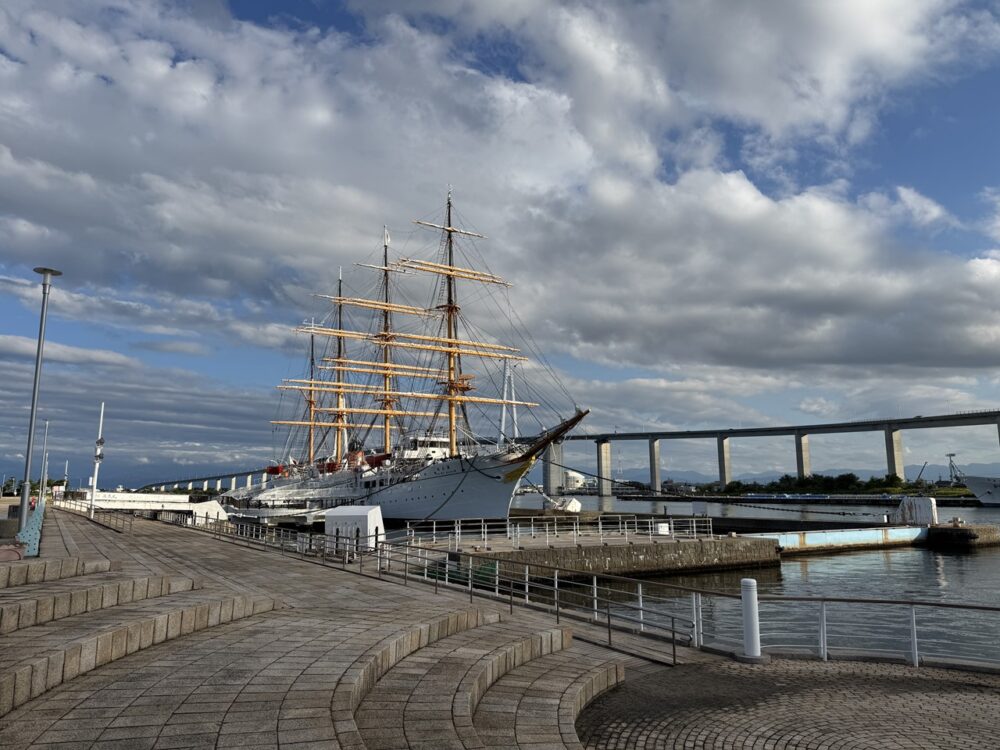
Mast over 40 meters high.
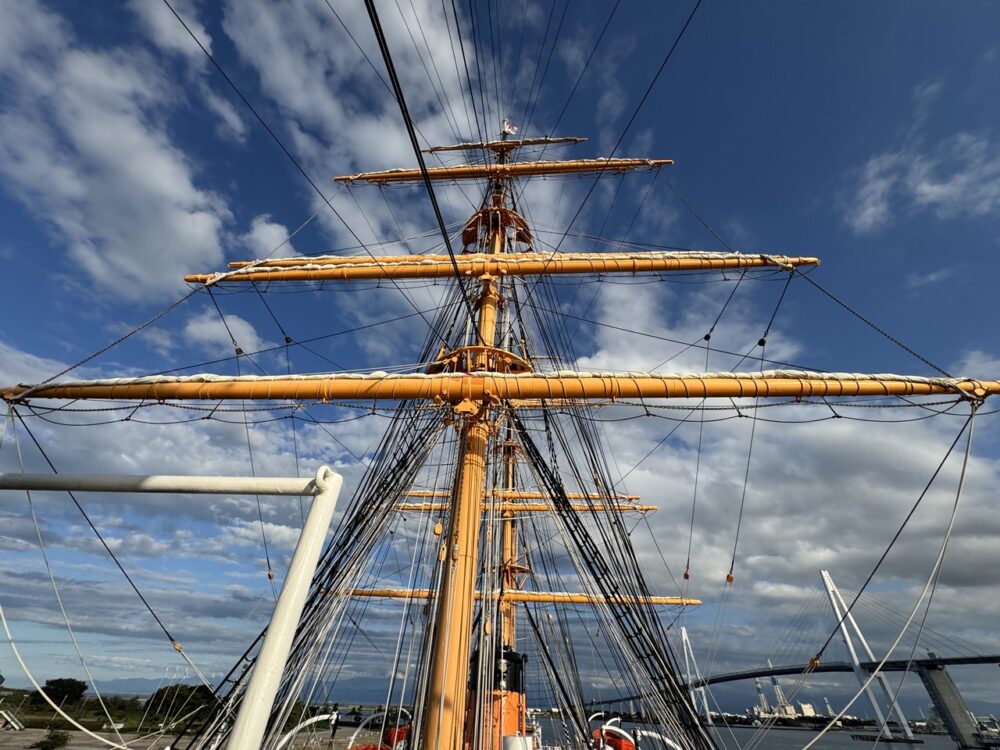
A work environment full of Showa-era black business feel that will test your mettle.
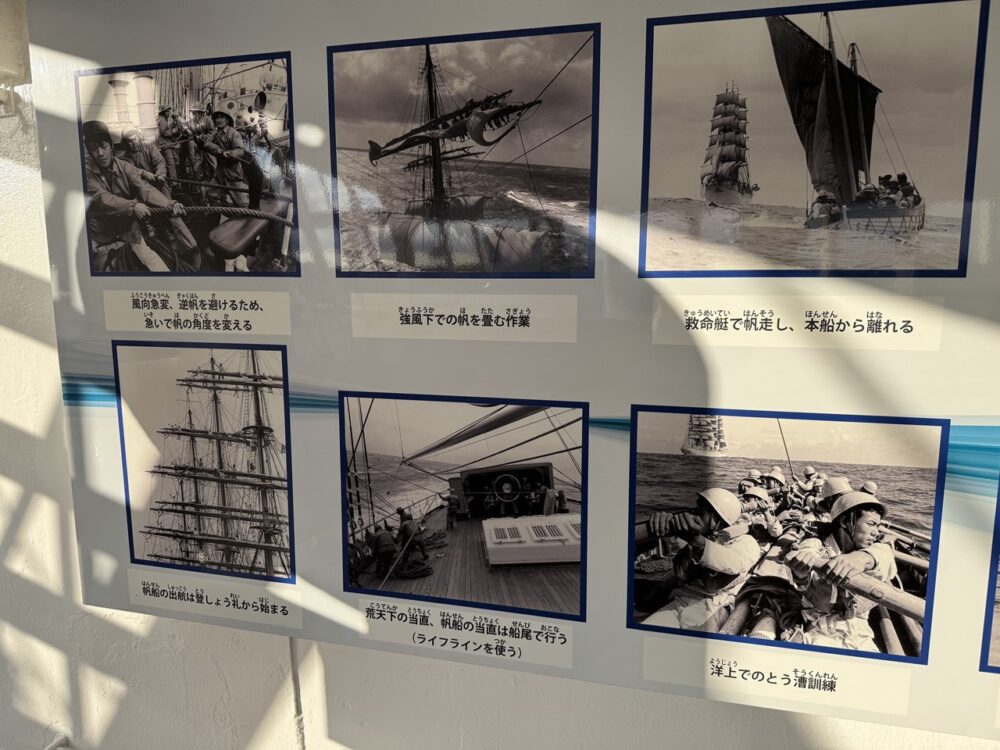
This is a ship where you can actually experience the living environment of the sailors.
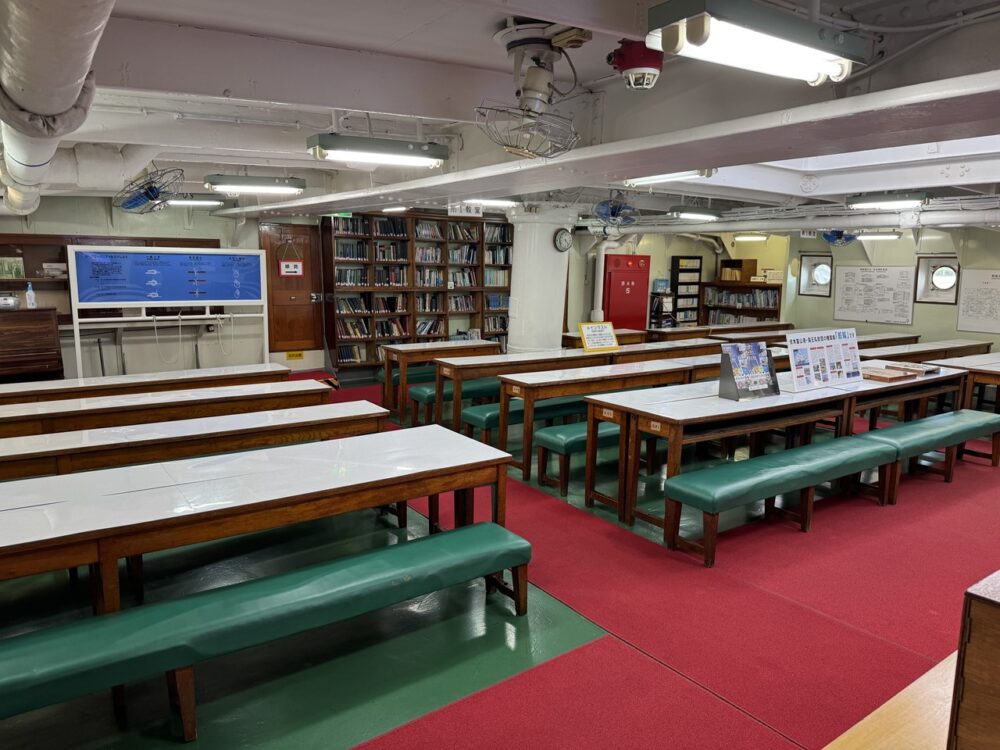
I went on board
The entrance fee to Kaiwomaru is 400 yen. Probably cash only.
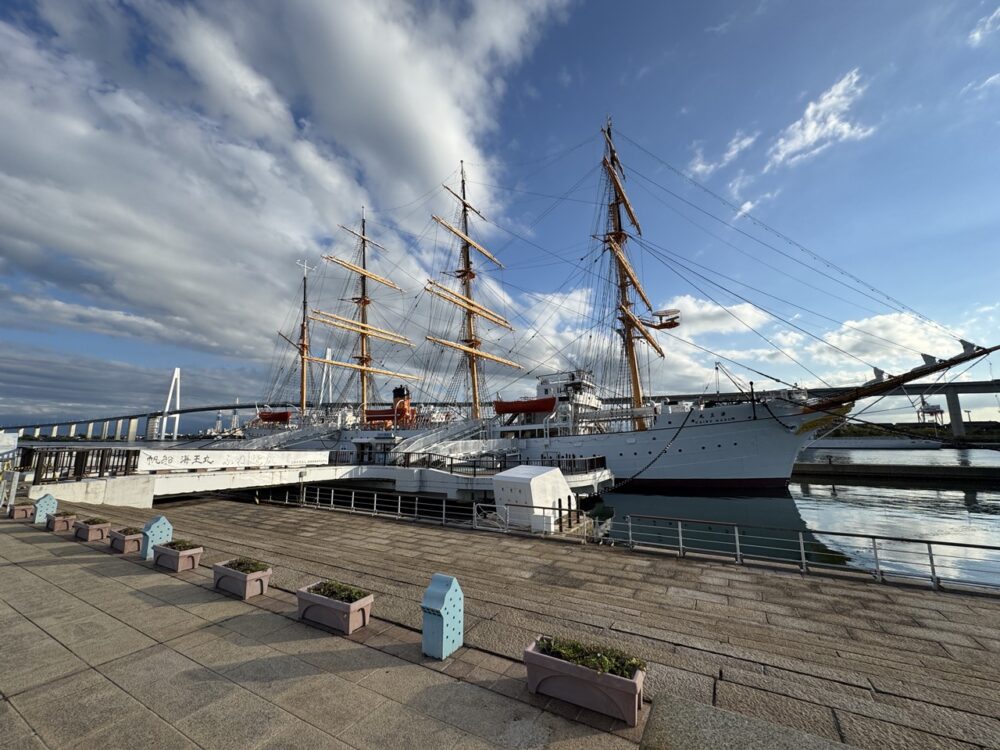
Climb the steep stairs and enter the bridge first.
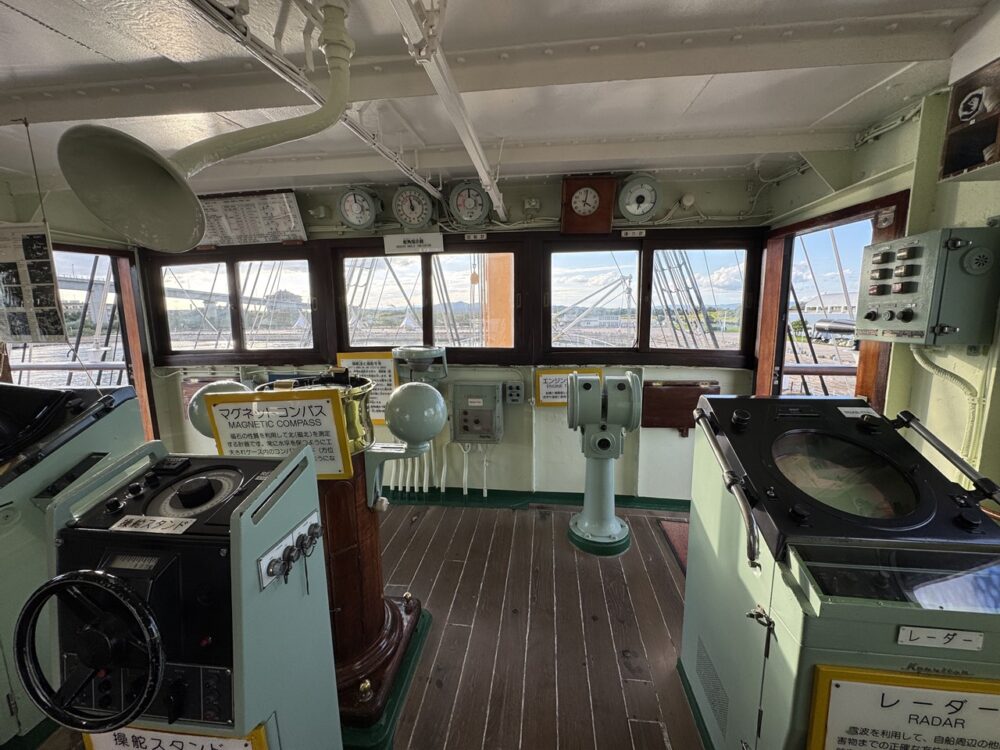
There are various instruments such as radar, rudder, compass, etc.
This is what I was personally concerned about. This is a table about waste.
While the disposal of plastic waste is completely prohibited, metal pieces can be thrown away.
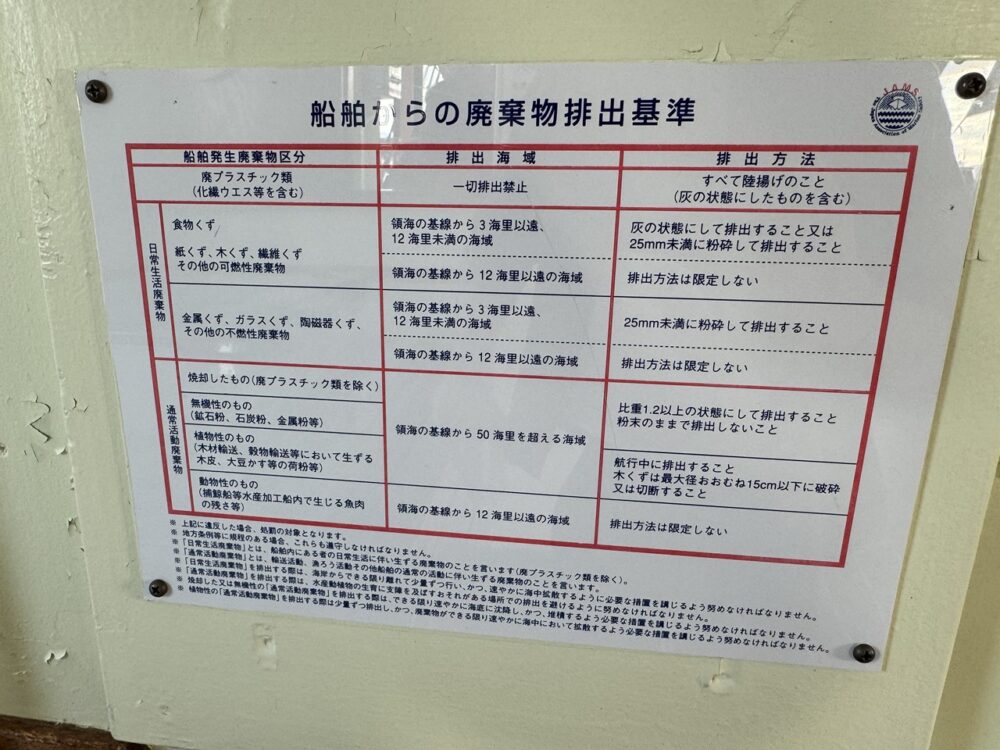
It appears that regulations become less strict once you move beyond a certain distance from territorial waters. For example, all eaten banana peels are returned to nature, but if they are near territorial waters, they cannot be thrown away unless they are chopped into dice-sized pieces.
Equipment for reeling in anchors. I was able to lift the chain links, but just one piece was so heavy that it would break my back.
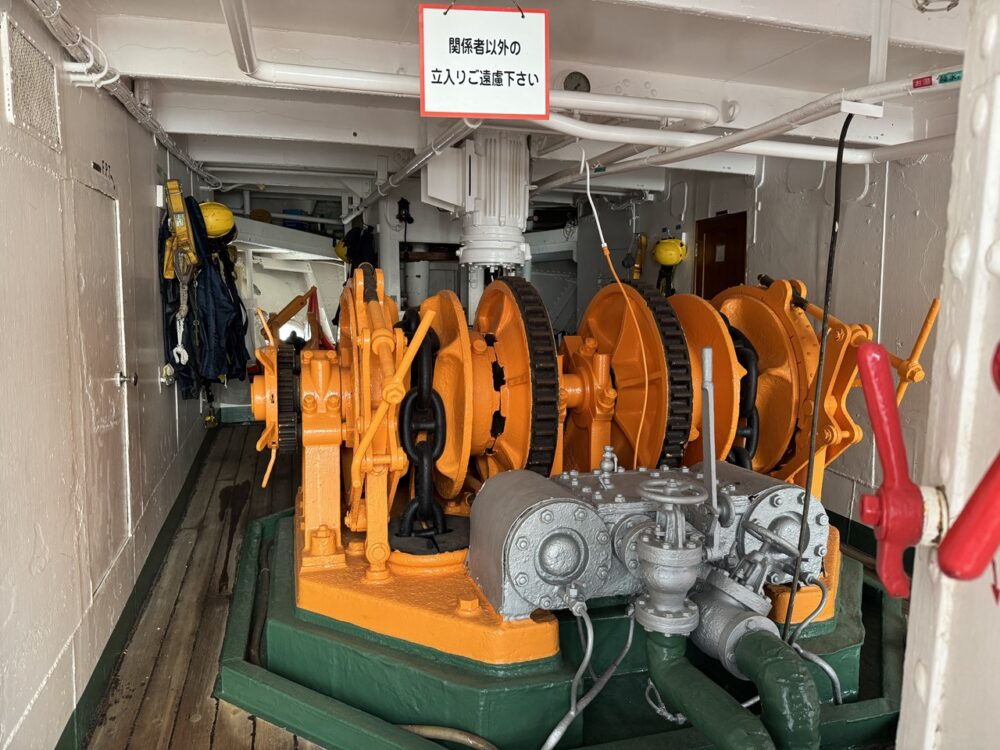
The photo I posted earlier. You can see in black and white how much hard work the sailors put into it.
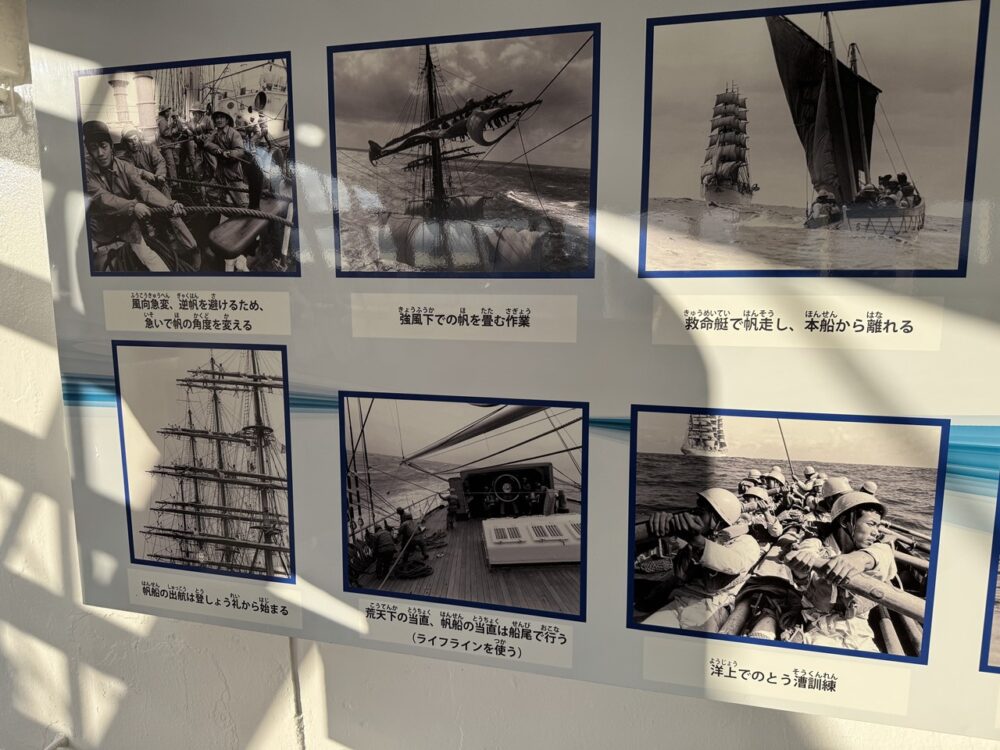
Sailor’s room. There’s nothing like a private space. The top of the bunk bed is the only personal space.

You can also go to the engine room. The piping and machinery are all cluttered and I’m confused.
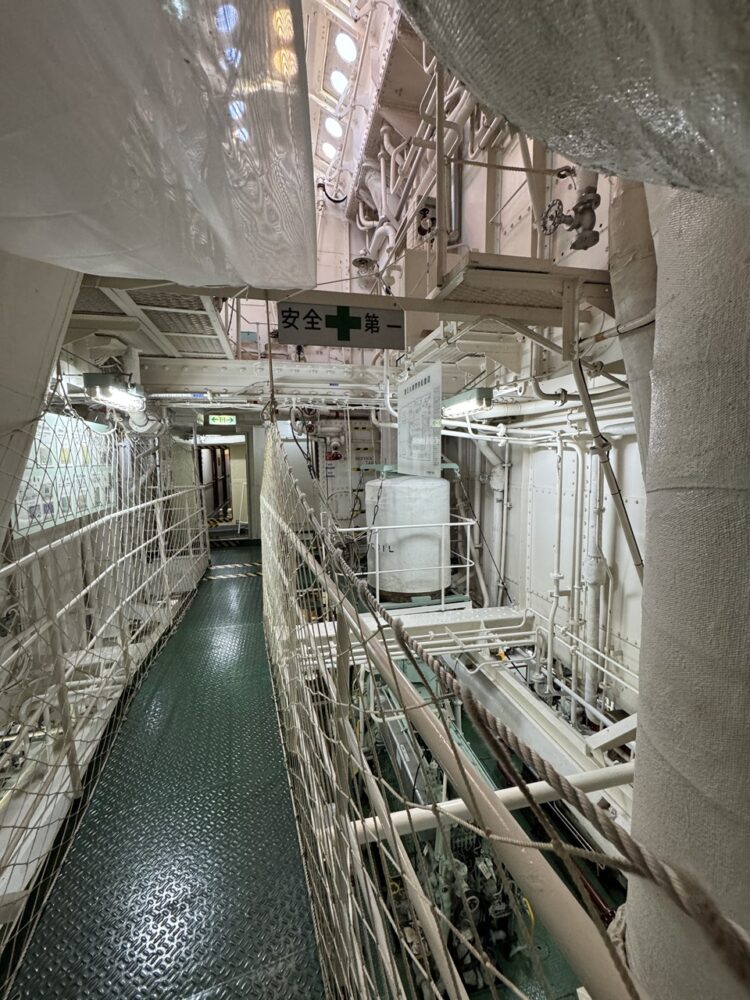
There is a space where the valves are lined up. It seems like a pain to have to know which valve does what.
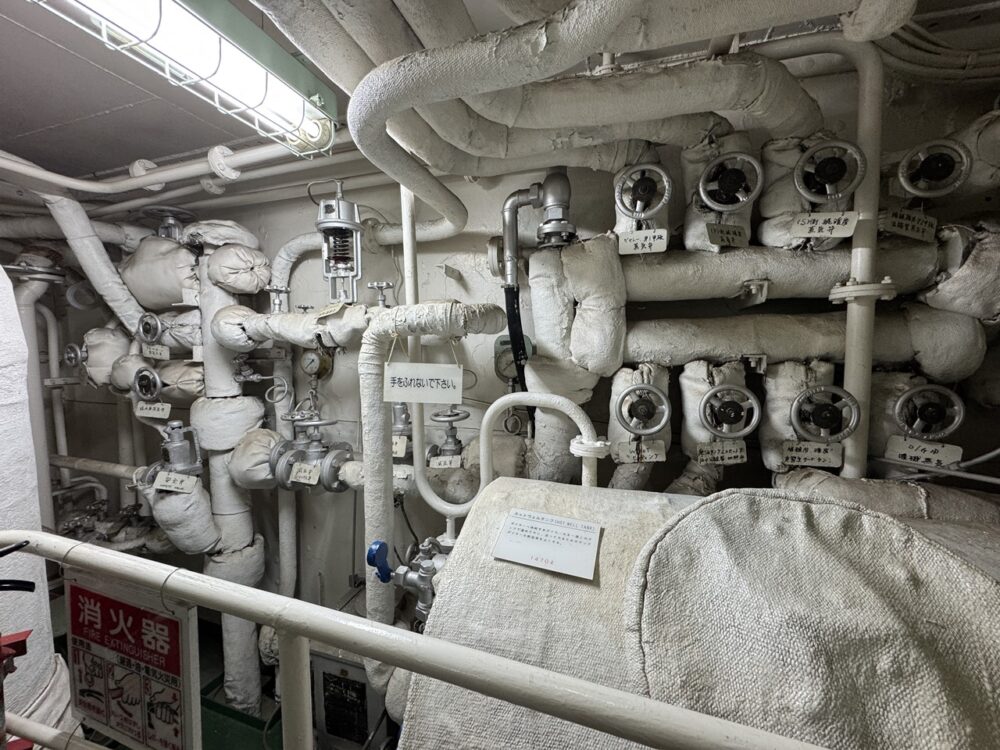
Onboard medical clinic. Apparently he has had appendix surgery.
Business hours are set for the time being, this does not apply to emergencies but it is written that . There’s no such thing as privacy.
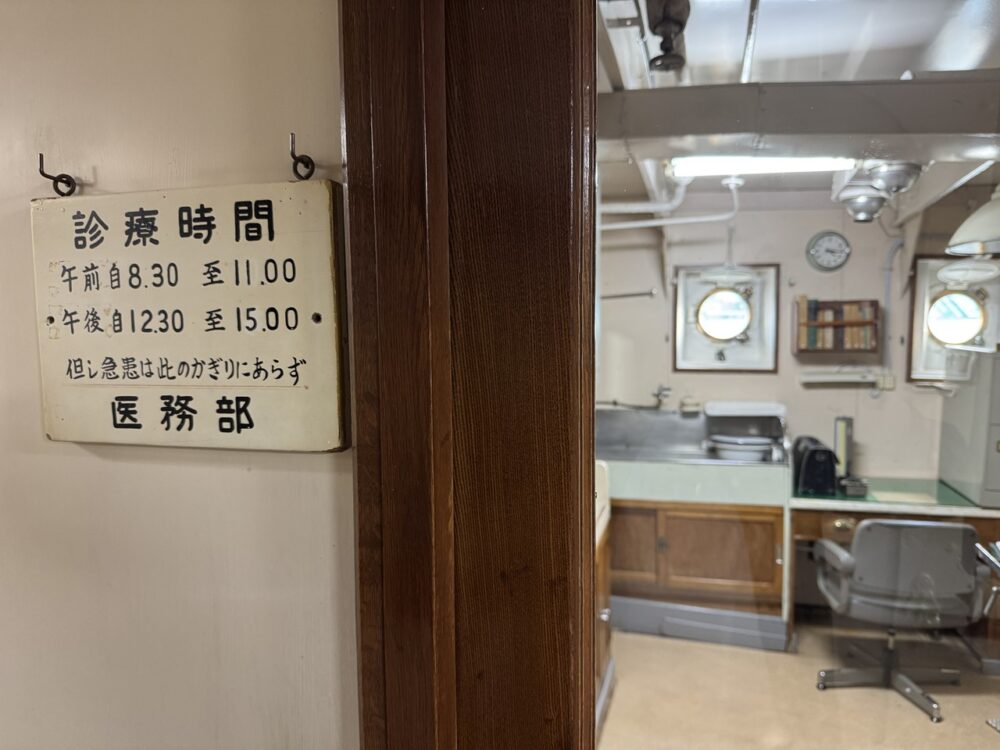
There is a sacred place room for lovers, and a padlock with their name written on it is tied to it. The oldest one I checked was in 2005. I don’t really think Kaiwomaru is a good date spot because the footing is very steep and cramped in many places, and there isn’t much else around.
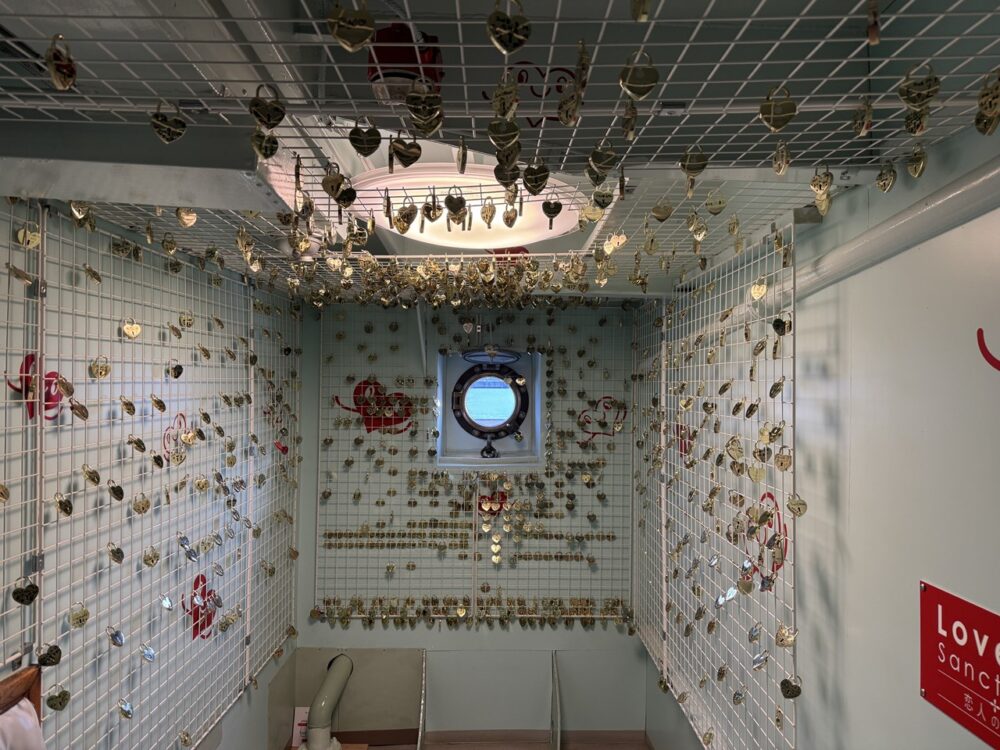
Kitchen.
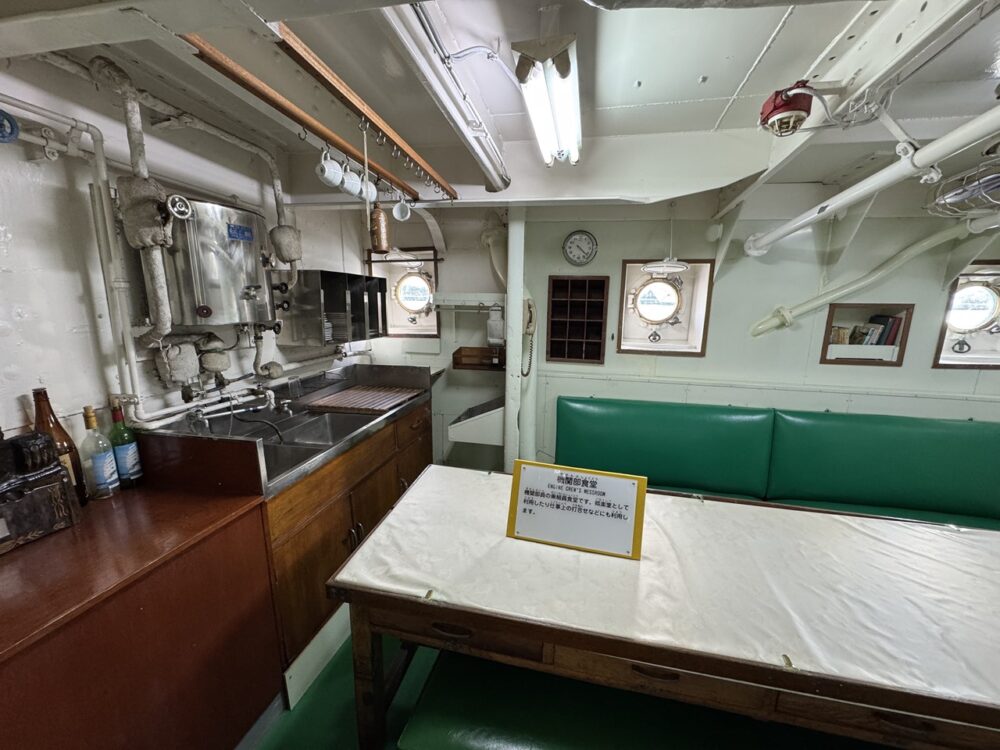
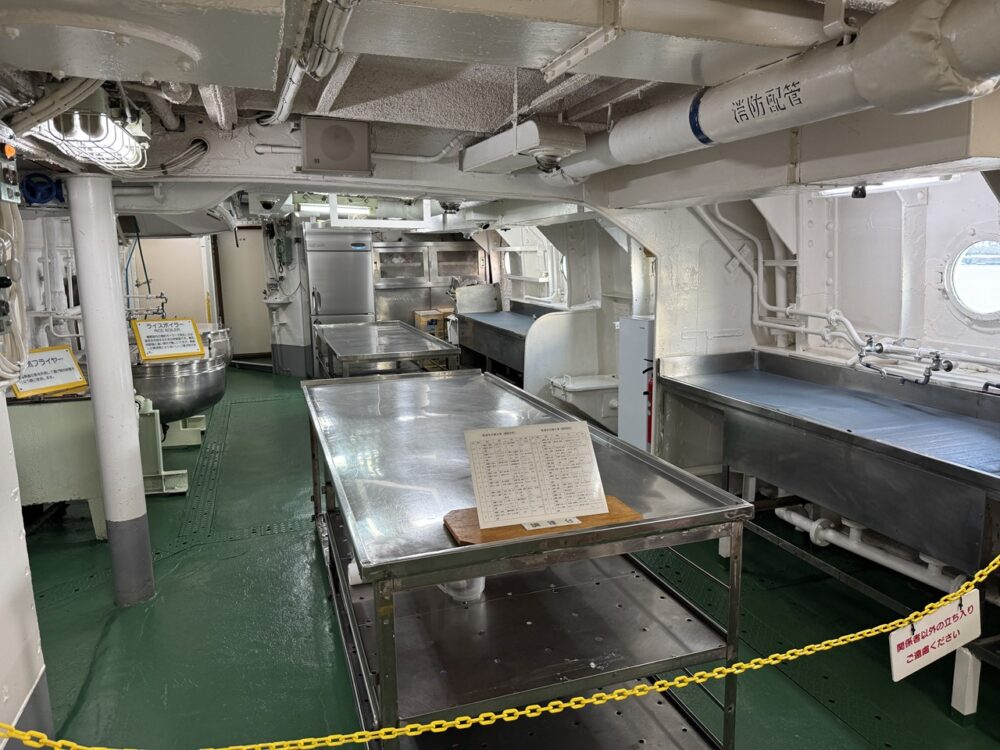
Apparently about 10 people were cooking meals for 200 people. I have a midnight snack, so I eat 4 meals a day. It will last forever as long as there is a voyage. It seems that if the shaking was too severe, they could not work, so in such cases they would make emergency food, canned goods, and rice balls.
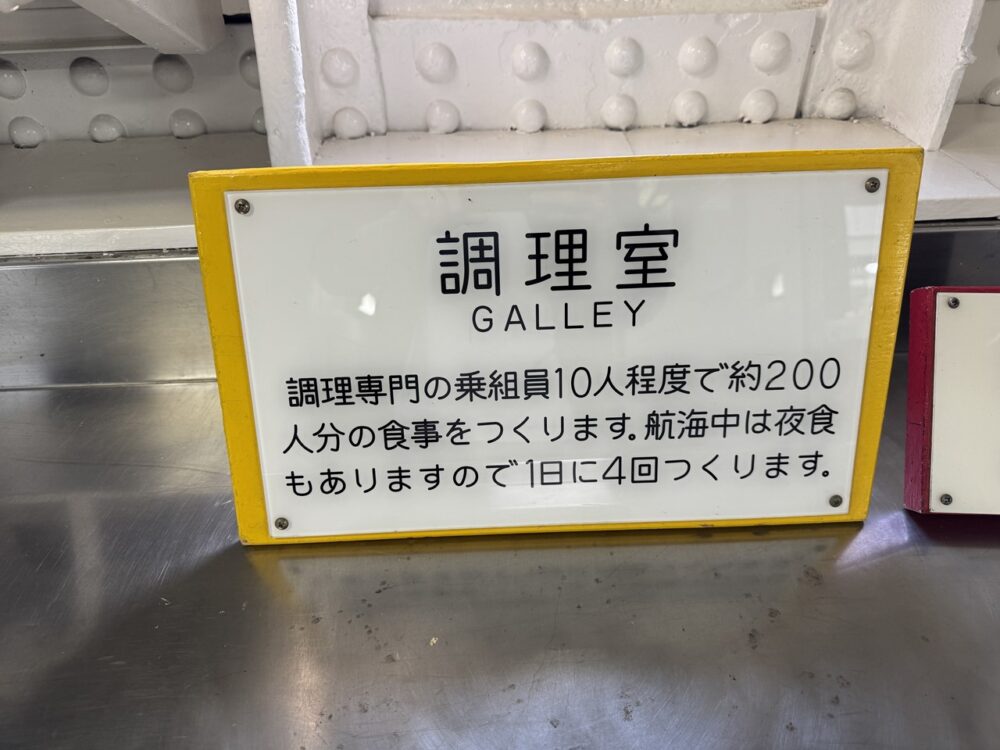
This room served as a library, dining room, lecture room, party room, etc.
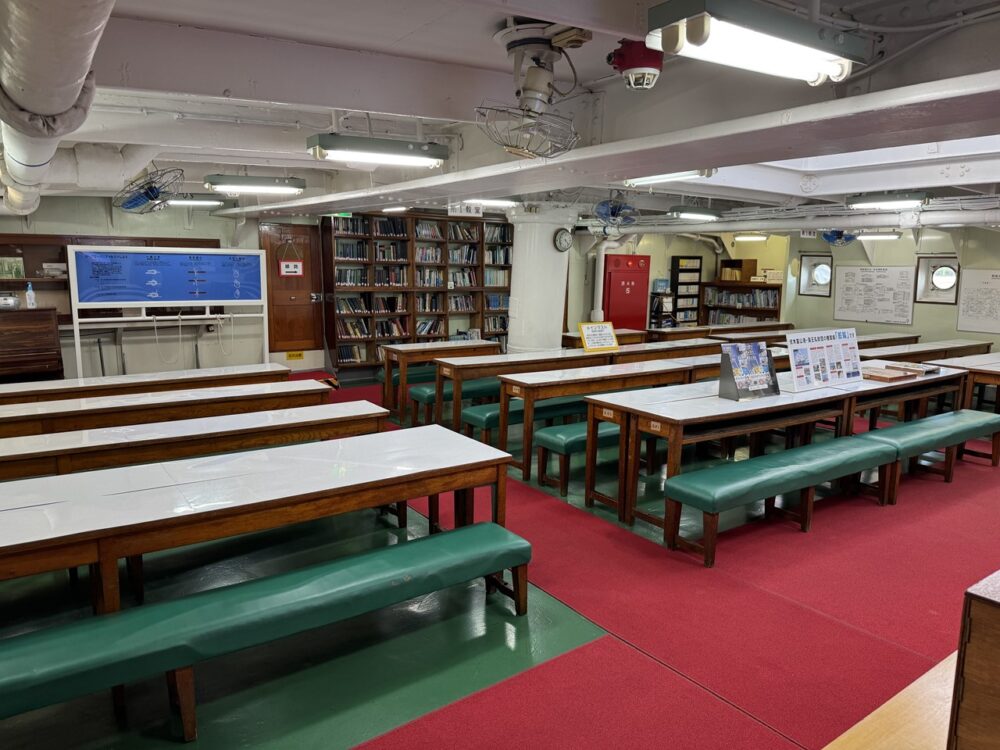
The books on the shelves in the back can be viewed in a library-like manner. We have everything from classic books to specialized books.
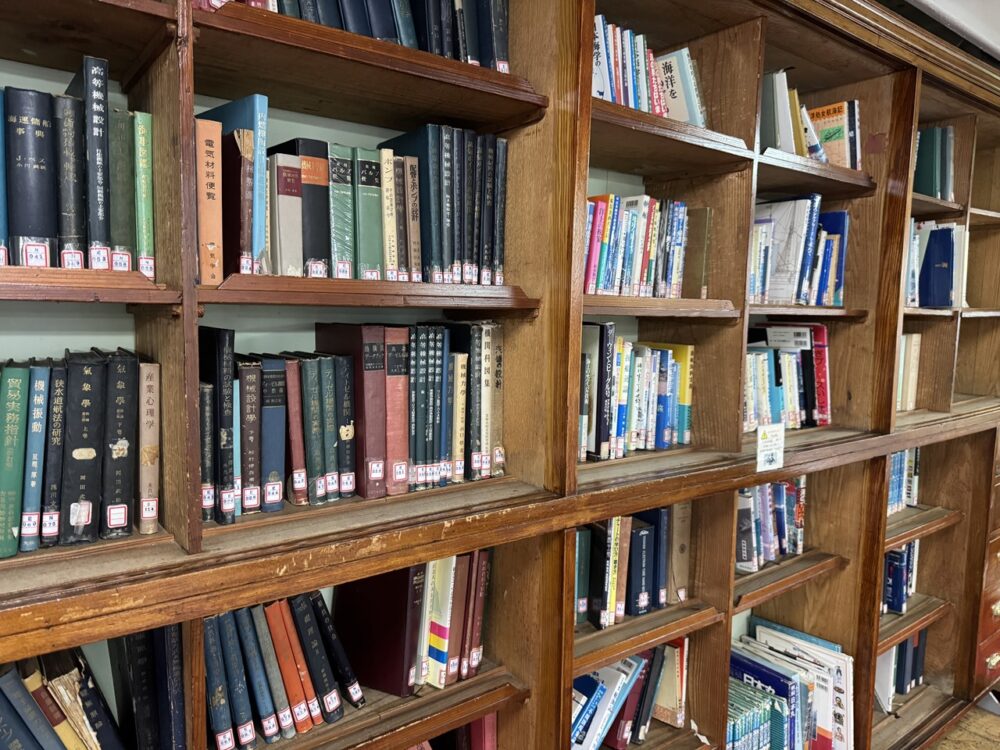
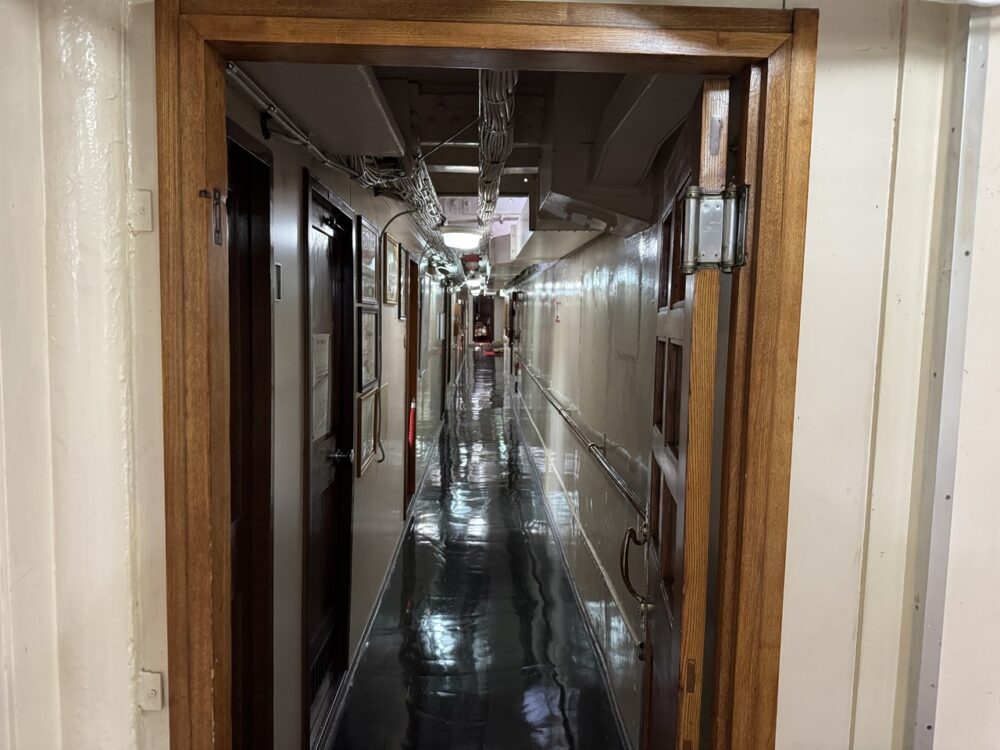
This is the captain’s room. It’s a job where I often get woken up even when I’m sleeping.
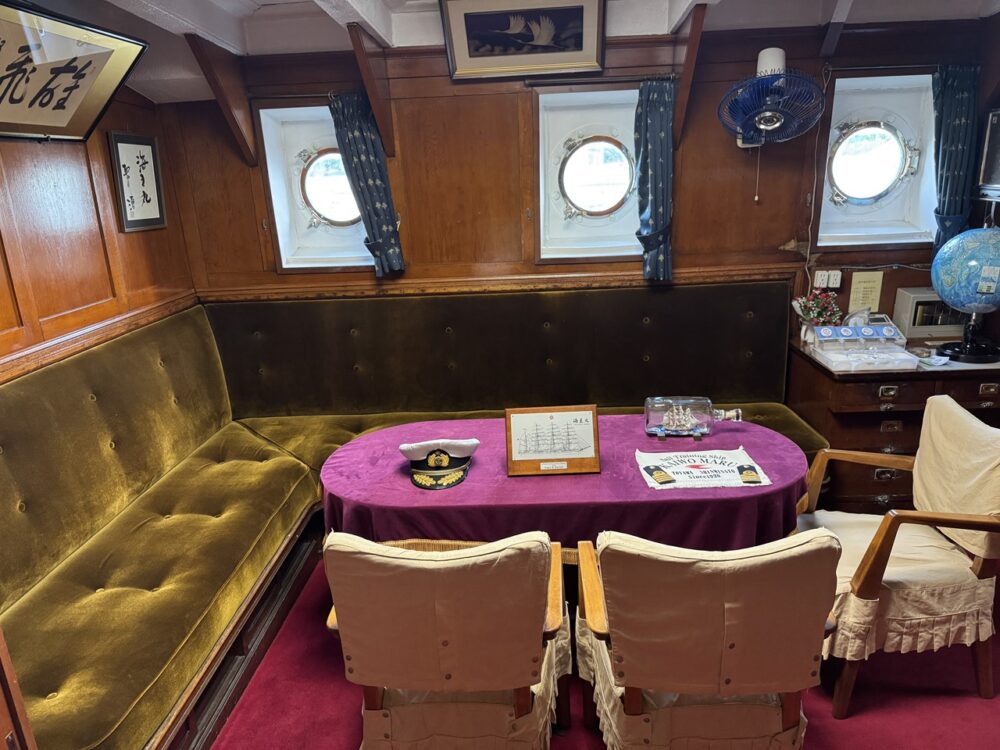
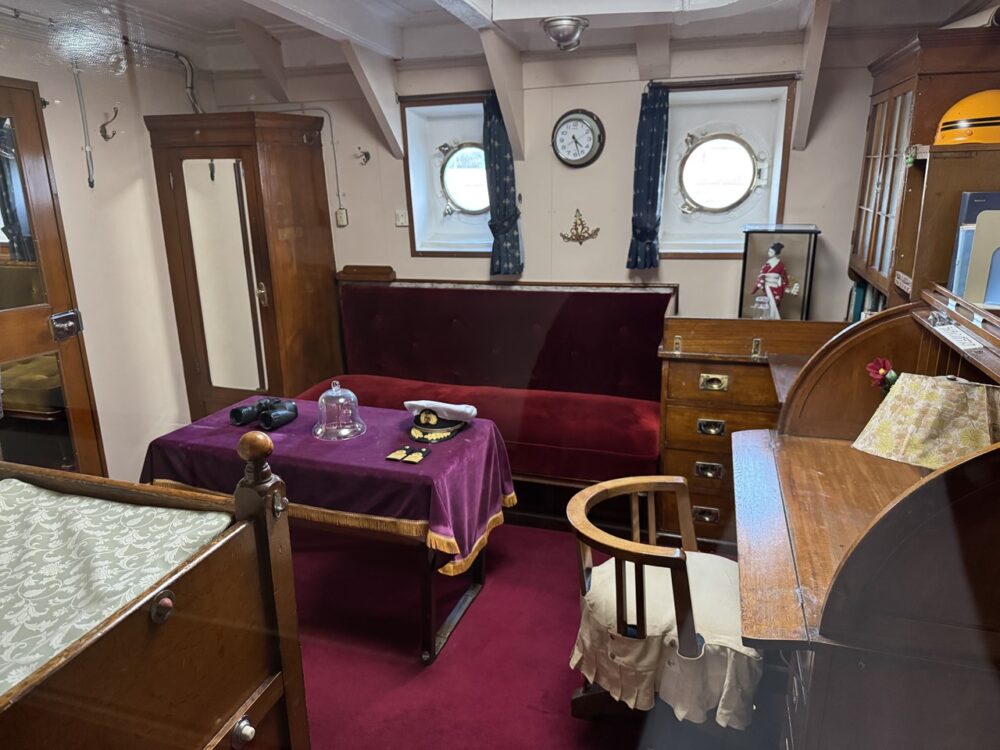
There is a bathroom next to the captain’s cabin.
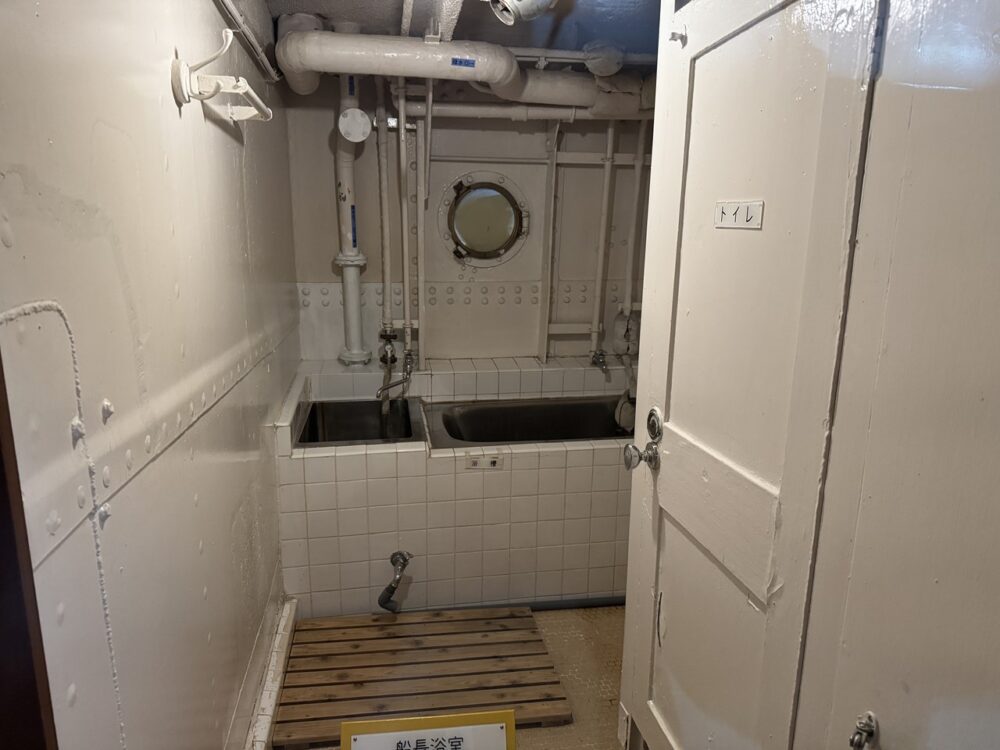
Some people do office work. Not only did they have to enter and exit ports, but they also had to cross borders, so the paperwork seemed to be really difficult.
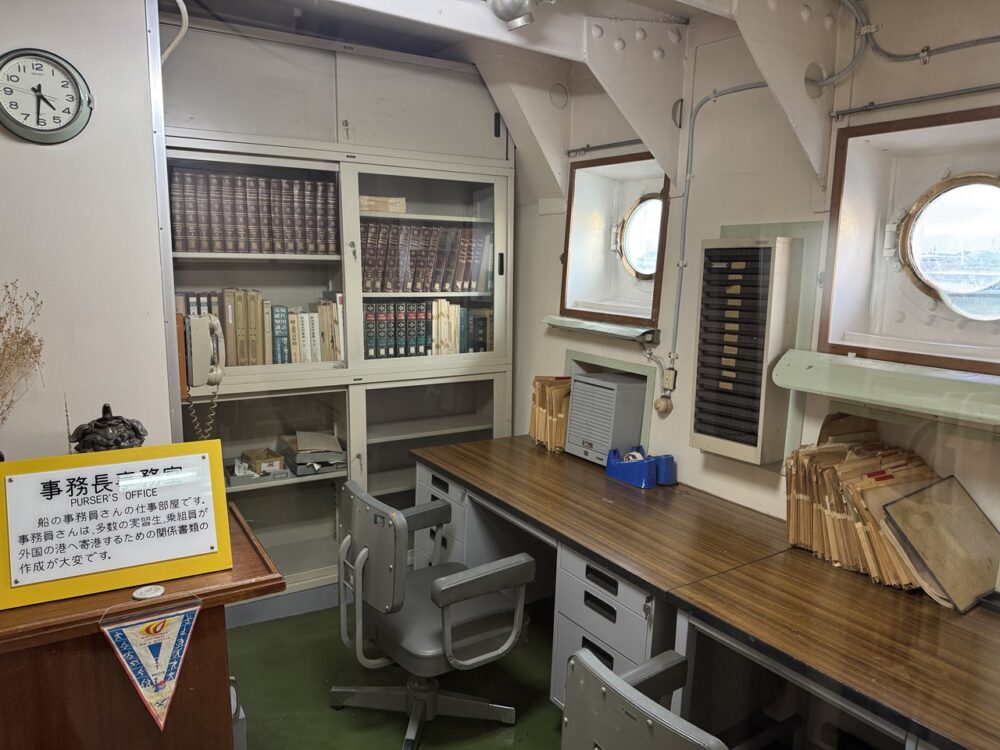
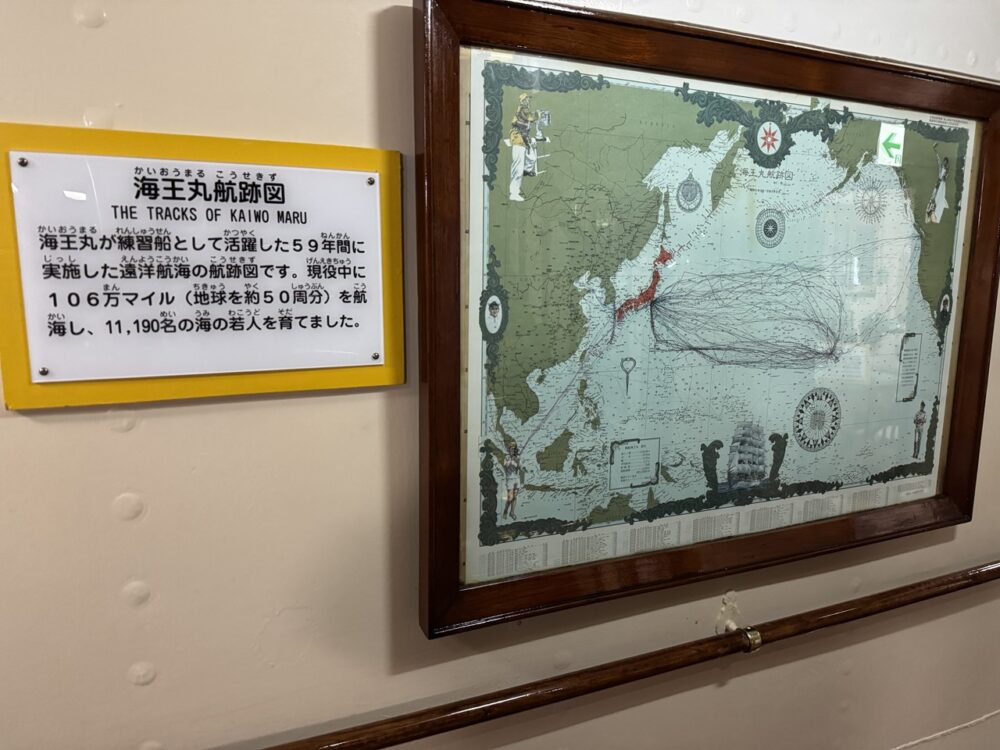
I stayed there for about 50 minutes.
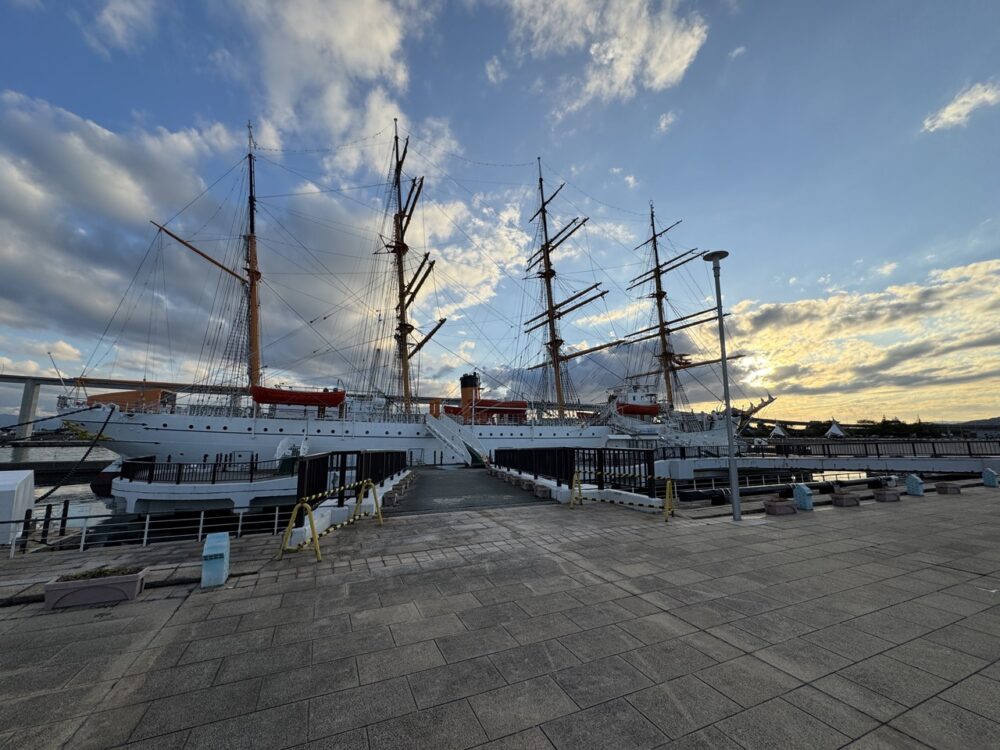
About volunteering
Volunteer recruitment and exhibits are held throughout the ship.
Why don’t you pay a salary even though you charge an entrance fee ?
The names of the participants are posted here.
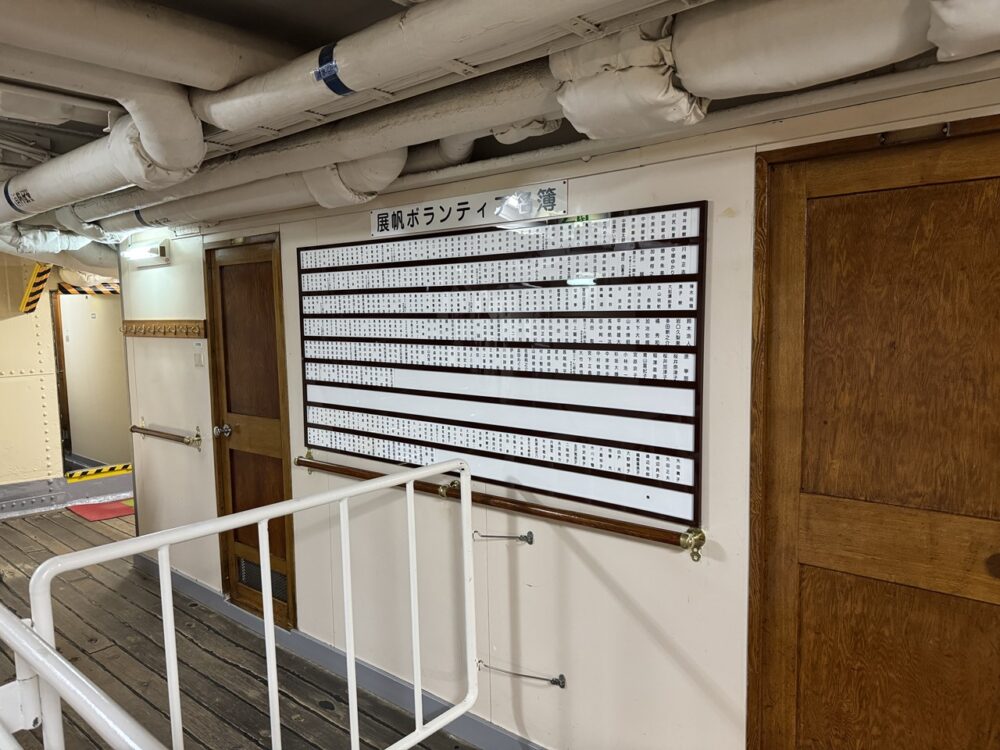
We have rented out a room and turned it into a recruitment room.
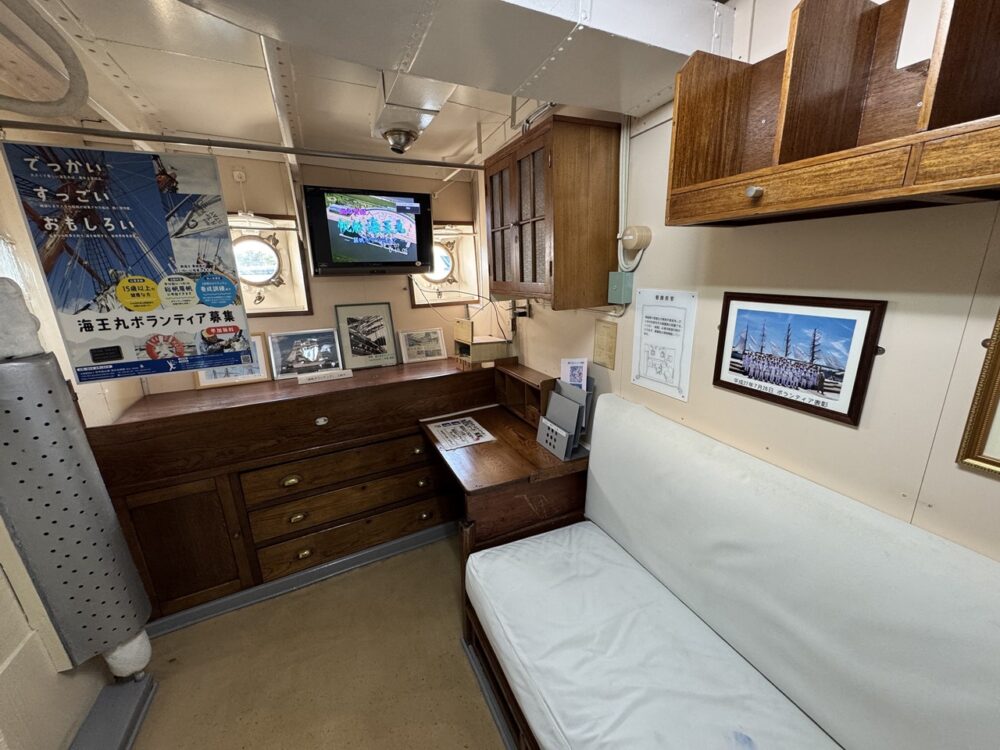
The video was also showing, but it’s hard work that young people these days don’t really want to do even for 2,000 yen an hour. There was also a scene where he was climbing the mast without a lifeline.
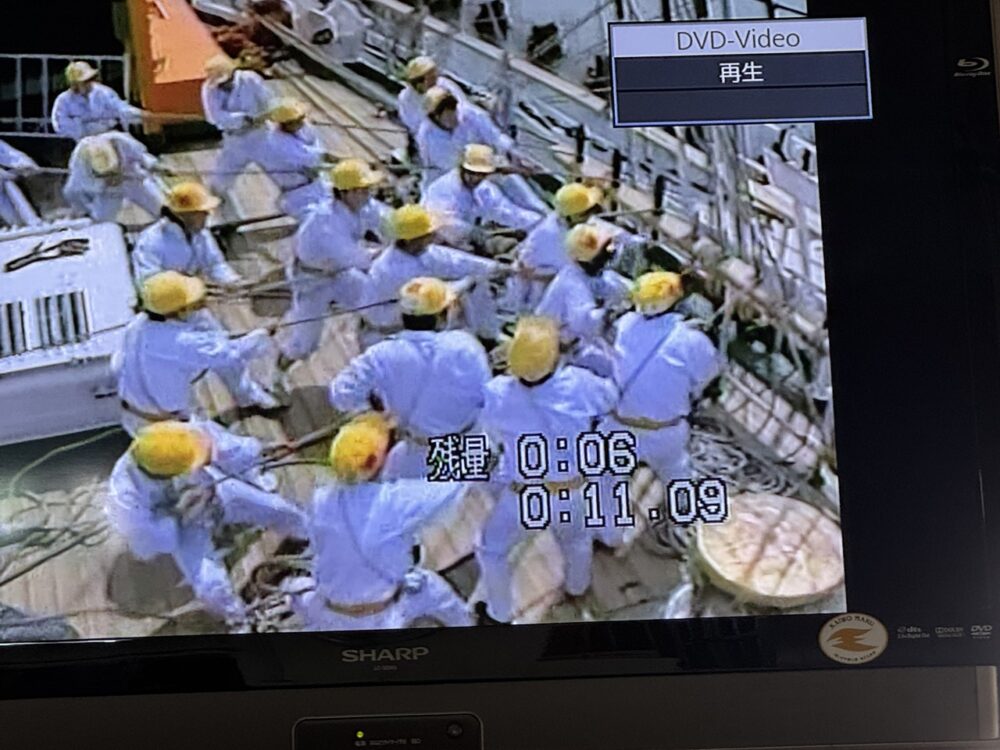
The entrance fee for such a facility is only 400 yen, and the operation relies on unpaid volunteers.
This kind of mindset is probably the reason why Japanese people’s salaries don’t rise.
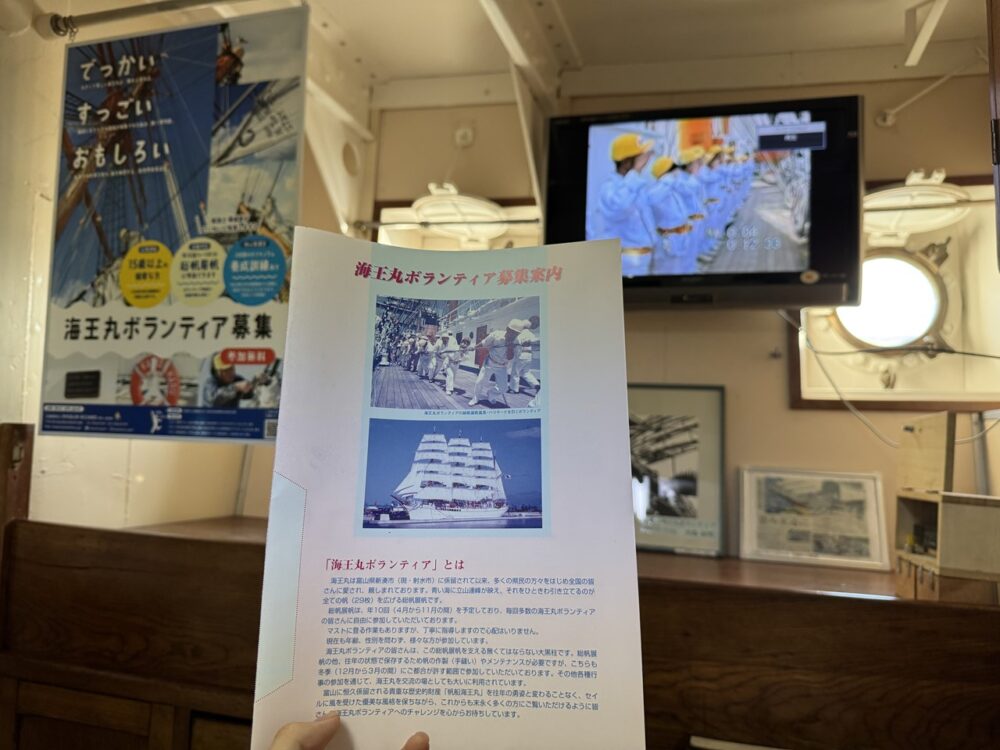
Other facilities at Kaiwomaru Park
There is an observation deck on the sea side, although it is not that special.
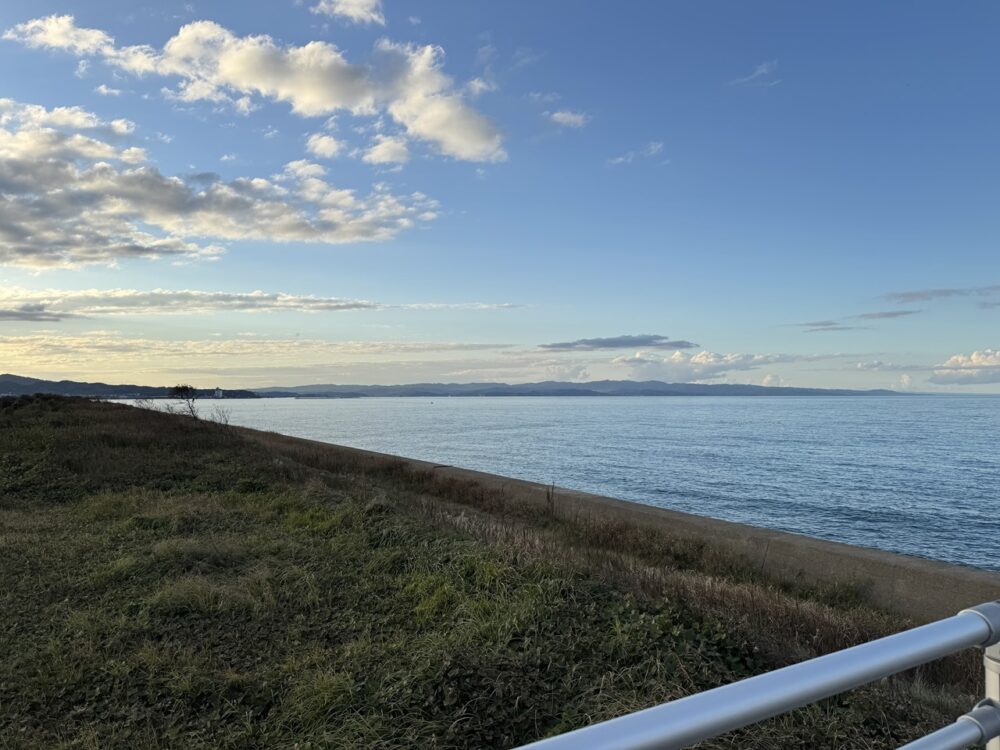
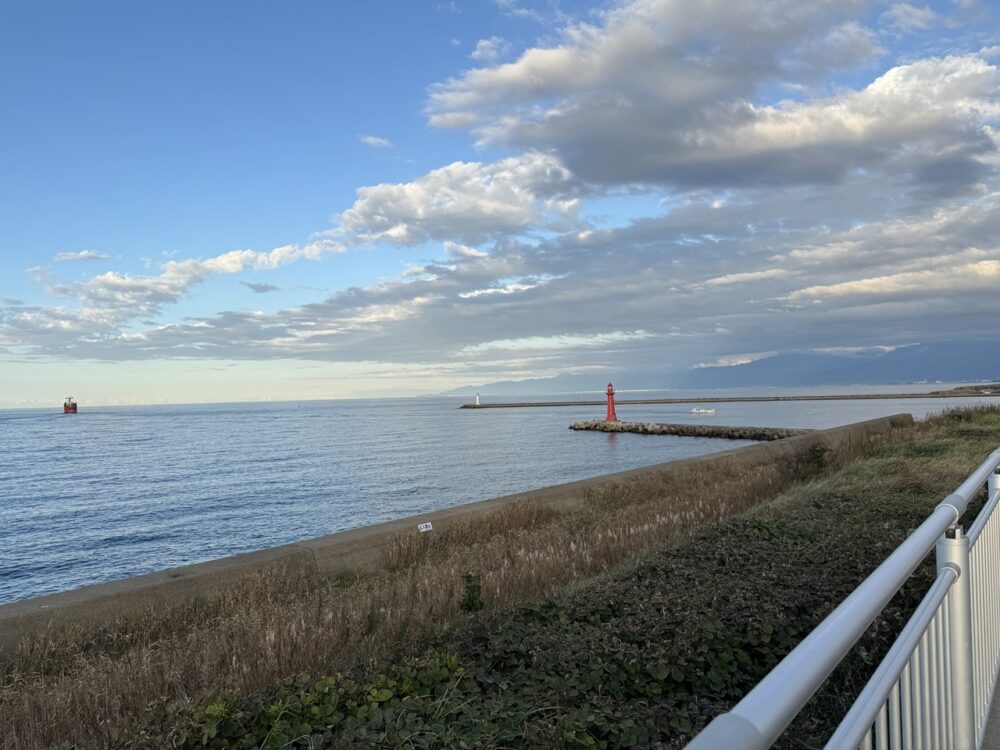
There was a vending machine that looked abandoned, and I was able to buy a tropical juice that was only sold in midsummer.
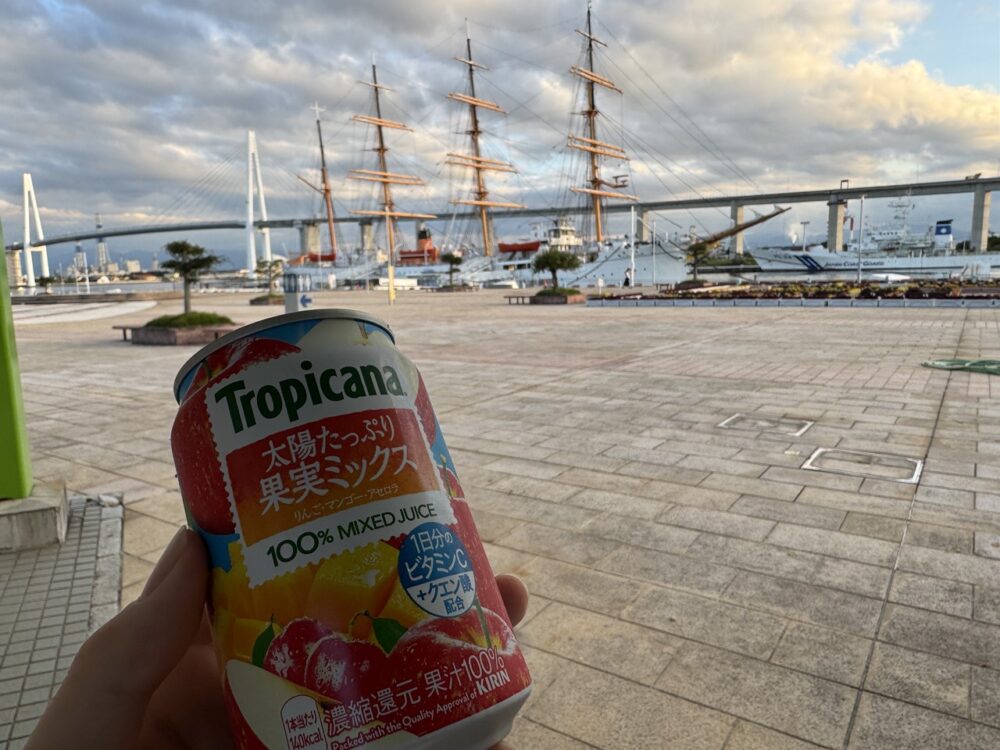
Baked sweet potato vending machine.
